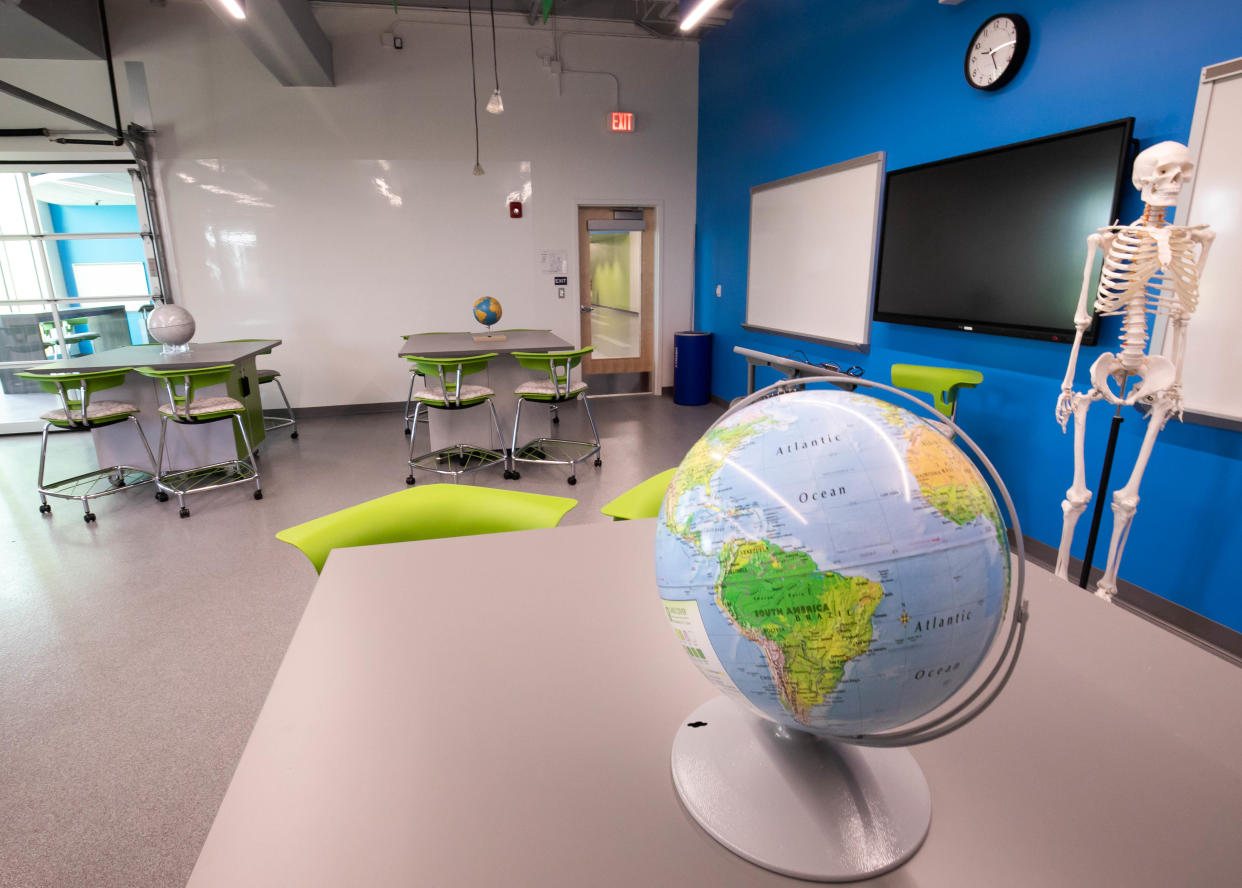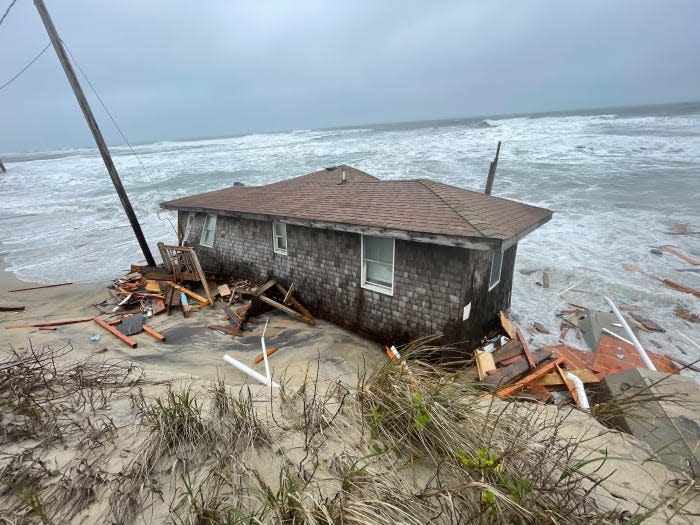Classroom confidential: Why science teaching got controversial in NC this year

In the end, the earth science course in North Carolina public schools didn't end up on the chopping block.
But for several weeks, it certainly appeared to be on life support after legislation under consideration by the Republican-controlled N.C. General Assembly would have made computer science one of the three science credits students needed to graduate − likely at the expense of earth science learning.
Why no one disputes the need for tomorrow's workers to be computer literate, here's why the idea of dropping a traditional science course alarmed many Democrats, educators and environmentalists.
The proposal
The legislation, House Bill 8, would make computer science one of the science credits students need for graduation.
State Rep. Erin Pare, a Wake County Republican and the bill's primary sponsor, has said the bill is designed to make students entering the workforce more prepared to compete for the growing numbers of jobs in North Carolina and nationally that require computer literacy. Business leaders have repeatedly said there's a skills gap when it comes to computer science knowledge and what the state's workforce can provide.
The bill proposed to fit the computer science requirement in by removing one of the three science courses high school students have to take − biology, physical science and earth or environmental science.
The controversy
While later editions of the bill didn't state which science course should be dropped, an earlier version would have eliminated the earth science class requirement.
That a science class requirement could be sacrificed sent alarm bells through much of the state's educational community. That it could be earth sciences, where students learn about climate change and other environmental perils scientists say the planet is facing due to man's actions, drew in environmentalists and others already worried about the limited science curriculum students are taught.

"Shock. Just shock," said Dr. Sarah Carrier, a professor of science education at N.C. State University, when asked what the reaction was from her and other educators to the proposal. "Many of us, including me, see science as being everywhere, so by not teaching it or ignoring it is hurting the very people we need to be productive future contributors to our society."
According to a 2021 Pew Research Center survey, young Americans are more engaged with climate change than older generations. They tend to see more climate change content on social media platforms, talk more about the need for action, and actively do more by volunteering and attending events.
CLIMATE WARRIORSThe kids are all fight: How millennials, Gen Z are driving change on climate
The reaction of the state's top educator didn't help soothe worries, either.
“Of all the things that keep me up at night, eliminating earth science isn’t necessarily one of them if it means we could replace it with computer science,” Republican State Superintendent Catherine Truitt told the House K-12 Education Committee in early February.
Also underlying the concerns of many was how the bill was proposed during a time when there's perceived to be an increased push by conservative politicians to impose their views and ideals on others. Those issues include limiting abortion rights, heightened book-banning efforts, moves to limit the discussion of non-traditional lifestyles in schools, and the rash of bills across the county − including in North Carolina − to ban critical race theory from schools.
Conservatives say the moves are a natural response to an intensifying liberal agenda that has moved the societal pendulum well to the left in recent years, leaving many people uncomfortable and questioning the country's future.
ENERGY SHIFTNorth Carolina's future energy roadmap rolled out amid criticisms, Christmas blackouts
Did climate change get caught up in these "culture wars"?
While North Carolina has a mixed history when it comes to climate change, including at one point last decade deciding to ignore worrying sea-level rise projections that saw the state skewered on late-night comedy shows, it has more recently been seen as aggressively moving to address the problems a changing climate promises to bring. That includes bipartisan legislation passed two years ago to reduce North Carolina's carbon emissions by 70% from 2005 levels by 2030 and reach net-zero emissions by 2050.
Where things stand now
After several weeks of intense debate and discussions, legislators said late last month that they had cobbled together a deal.
While the computer science requirement for students would remain, it would take the place of an elective rather than an existing science course.

While stating that she wasn't too familiar with the compromise bill, Carrier said education is too important, too tied together across disciplines to be seen as promoting one angle or goal at the expense of something else.
“Our world is not separated by subjects, although that’s how it’s often played out in our policies," she said.
According to the N.C. General Assembly website, the bill passed the house 115-2 on March 8 and is now in the N.C. Senate's Rules Committee, which is headed by Sen. Bill Rabon, R-Brunswick.
Assuming the GOP-backed bill passes the Republican-controlled Senate, it will then head to Gov. Roy Cooper's desk.
Reporter Gareth McGrath can be reached at GMcGrath@Gannett.com or @GarethMcGrathSN on Twitter. This story was produced with financial support from 1Earth Fund and the Prentice Foundation. The USA TODAY Network maintains full editorial control of the work. Earth science
This article originally appeared on Wilmington StarNews: Why science teaching got controversial in NC this year

